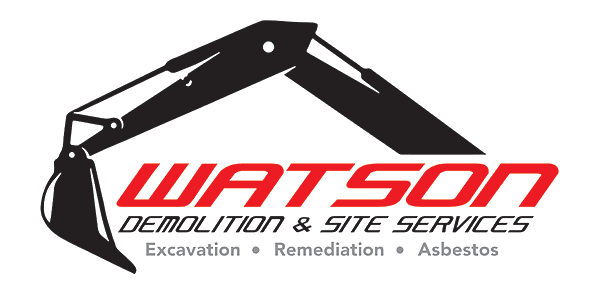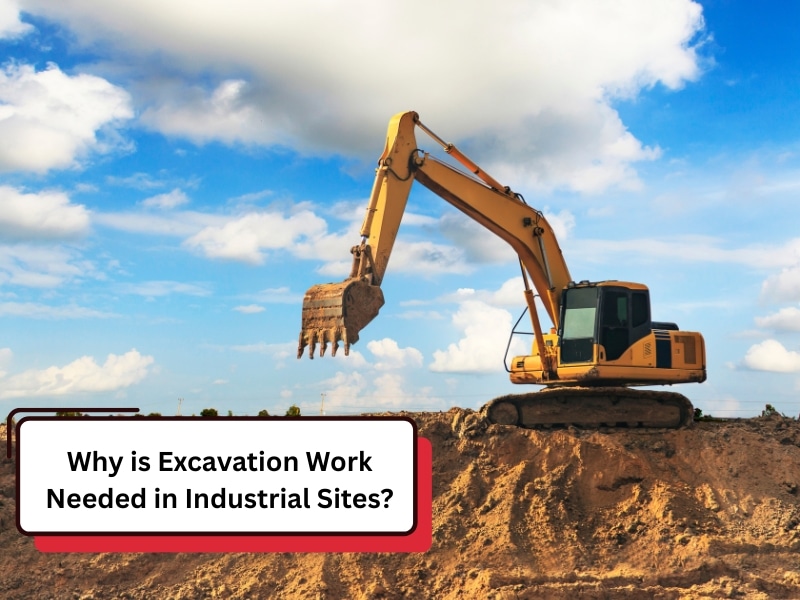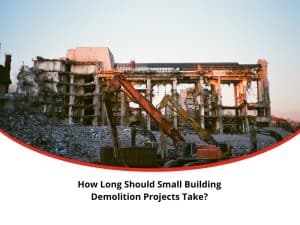Excavation work is crucial in the construction and development of industrial sites. Proper excavation ensures that a stable, safe foundation is created for buildings and structures, whether for new projects or site preparation. This work involves removing soil, rock, and debris from a site to prepare it for construction or further development. This article will explore why excavation work is needed in industrial sites and how it contributes to a smooth, efficient, and safe project.
What is excavation work, and why is it essential in industrial sites?
Excavation removes materials from the earth’s surface to prepare the ground for construction. Excavation is a crucial step in any industrial development because it lays the foundation for all structures and installations that will be built.Sites may face uneven ground, poor soil conditions, and drainage problems without proper excavation. Here’s why excavation work is needed in industrial sites:
- Foundation preparation: Excavation ensures that the ground is level and stable, allowing for solid foundations for industrial buildings.
- Soil removal and clearing: This process removes unwanted materials like debris, rocks, or excess soil to ensure a clean, manageable area for construction.
- Site safety: Proper excavation helps avoid hazards by preventing ground instability that could lead to accidents.
- Utility installation: Excavation is often required to lay the groundwork for utilities like plumbing, electricity, and gas lines.
- Drainage management: It helps create proper drainage systems that protect the site from flooding and erosion.
Excavation provides a solid foundation for construction by removing obstacles and shaping the land to meet specific requirements, preventing future issues.
Why is proper site preparation essential for industrial sites?
Proper site preparation is key to ensuring that any industrial site functions efficiently and safely. Without a well-prepared site, construction projects can face unexpected challenges. Excavation is a crucial part of this preparation. Consider the following:
- Ensures proper drainage: Excavation creates the necessary slope for water to drain away from industrial buildings, preventing flooding and soil erosion.
- Improves soil stability: Excavation removes weak or contaminated soil, allowing for installation of solid foundations and structures.
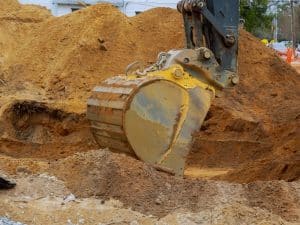
- Provides a clean slate: Clearing the site of debris and obstacles is crucial for future development and ensures the land is ready for construction.
- Increases long-term site usability: Proper preparation ensures that the industrial site will remain functional, allowing for future developments without compromising the area’s integrity.
You can avoid costly repairs and delays by focusing on thorough site preparation.
When is excavation work needed in industrial sites?
Excavation work is essential at various stages of industrial site development. It is necessary when starting a new project and throughout the site’s life. Here’s when excavation becomes crucial:
Stage | Purpose | Key Action |
Before construction | Ground prep | Clear & level |
Site remediation | Contaminant removal | Remove soil/debris |
Creating foundations | Install support structures | Dig trenches/holes |
Post-weather event | Damage repair | Clear debris/level site |
Infrastructure work | System upgrades | Access & install lines |
Excavation ensures these needs are met promptly and professionally, helping industrial projects move forward without delays while managing risks associated with common excavation hazards.
Is excavation work needed for all industrial projects?
Not all industrial projects require the same level of excavation, but most still need some form of excavation, depending on the project’s scope. To find reliable, quality excavation solutions for industrial sites, it’s crucial to assess each site individually and determine its specific needs. Consider the following scenarios:
- Large-scale construction: For major industrial buildings or facilities, extensive excavation is needed to prepare the land.
- Smaller-scale operations: Smaller industrial projects may require minimal excavation work for foundation setting or utility installations.
- Renovations and extensions: Excavation can be necessary even for site expansions or renovations to ensure proper support and level ground.
- Specialty projects: Certain projects, such as those requiring deep foundations or heavy machinery installation, may require more intensive excavation.
- Remediation projects: Excavation may also be necessary for environmental remediation, such as clearing contaminated soil.
The type of excavation work required will depend on your industrial project’s specific needs and goals.
How does excavation help with soil stabilisation on industrial sites?
Soil stabilisation is necessary to strengthen the ground to ensure it can safely support heavy industrial structures. Excavation plays a key role in this process by allowing for proper soil analysis and treatment. Here’s how excavation contributes to soil stabilisation:
- Removes poor-quality soil: Excavation helps remove weak or unstable soil, replacing it with stronger, more stable materials.
- Ensures proper compaction: Excavation creates space for compacting the soil, making it more resistant to shifting and erosion. Understanding erosion control for excavation safety is essential to maintaining the site’s stability and preventing potential hazards.
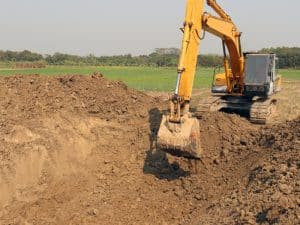
- Improves load-bearing capacity: Excavation allows for the installation of geotechnical solutions, such as soil reinforcement, that can increase the site’s ability to bear heavy loads.
- Prevents uneven settling: Excavation ensures that the ground is level and compacted, reducing the risk of structures settling unevenly.
- Facilitates drainage solutions: Excavation ensures the proper installation of the site’s drainage system, which prevents water from causing soil instability.
By stabilising the soil, excavation helps ensure the safety and longevity of your industrial site.
Does excavation work need to be done for environmental compliance?
Environmental compliance is a critical factor in industrial development, and excavation plays a significant role in ensuring that sites meet environmental regulations. Here’s how excavation helps with compliance:
Key Function | Environmental Goal | Positive Impact |
Removes toxic soil | Site contamination | Cleaner, safer land |
Enables sustainability | Green infrastructure | Long-term eco-support |
Meets legal standards | Regulatory compliance | Avoids fines or delays |
Protects ecosystems | Biodiversity preservation | Reduced environmental harm |
Supports waste handling | Eco-friendly disposal | Proper material removal |
Addressing environmental concerns early in excavation work ensures project compliance, preventing fines and legal issues later on.
Why is excavation work crucial for safety and efficiency?
Safety and efficiency are top priorities on any industrial site, and excavation work directly contributes to both. Here’s why:
- Prevents hazardous conditions: Excavation helps stabilise the ground, reducing the risk of accidents from shifting or collapsing soil. Proper shoring techniques are one of the best ways to prevent soil collapse during excavation.
- Improves accessibility: Excavation ensures workers can safely move equipment and materials around the site.
- Speeds up the construction process: By preparing the site correctly, excavation makes the construction process smoother and more efficient, reducing project timelines.
- Minimises risk of flooding: Excavation properly grades the land to prevent water accumulation, reducing the risk of accidents or damage.
- Ensures proper equipment placement: Excavation creates the necessary space for placing large machinery and equipment, ensuring their optimal function.
Excavation work helps avoid costly delays and maintains a productive work environment by ensuring that the site is safe, stable, and efficient.
Conclusion
Excavation work is a critical part of any industrial site development. It prepares the site for construction, stabilizes the soil, enhances safety, and helps meet environmental standards.Whether clearing the ground for new buildings or maintaining site conditions, excavation is essential for creating a solid foundation for industrial operations.
Ready to begin your industrial site work? Get in touch with Watson Demolition & Site Services for a discussion.
